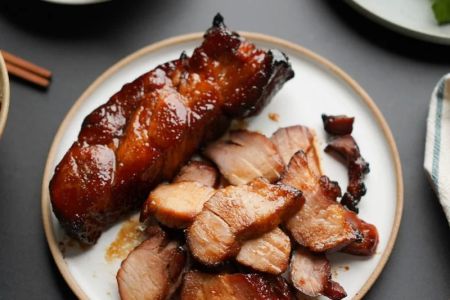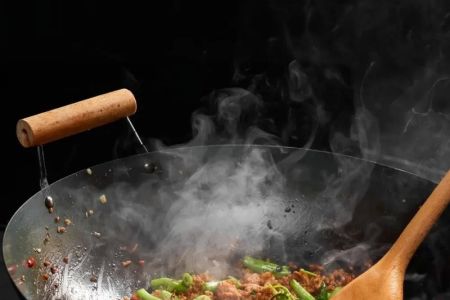Is It Safe to Eat at a Chinese Restaurant?
As a food enthusiast, I’ve often found myself indulging in delicious Chinese cuisine. The variety of flavors and unique dishes make it one of my go-to options when dining out. However, I recently realized that many people have concerns about food safety when eating at Chinese restaurants, especially with the rise of foodborne illnesses and health-related concerns. Is it safe to eat at a Chinese restaurant? In this article, I will share what I’ve learned about food safety in Chinese restaurants and provide tips to help ensure a safe dining experience.
1. Understanding Food Safety in Chinese Restaurants
Food safety is a crucial concern in any dining establishment, not just Chinese restaurants. Over the years, I’ve come to realize that the key to a safe dining experience lies in the hygiene practices and regulations followed by the restaurant. Chinese restaurants, like any other food service establishment, are required to adhere to strict health and safety regulations enforced by local health departments.
1.1 Health Inspections and Regulations
One of the first things I researched when considering the safety of eating at a Chinese restaurant was the food inspection process. In the United States, restaurants are regularly inspected by local health departments. These inspections check for cleanliness, proper food handling, and overall safety measures. The findings from these inspections are usually made public, and many restaurants display their ratings for customers to see. When choosing a restaurant, I always make sure to check if they have a good health inspection record. Most well-established Chinese restaurants maintain high standards of cleanliness and food safety.
1.2 Safe Handling of Ingredients
Chinese cuisine involves a wide range of ingredients, from fresh vegetables and meats to seafood and exotic spices. In my experience, the best Chinese restaurants focus heavily on the proper handling and storage of these ingredients. Proper food handling practices include keeping raw foods separate from cooked foods to prevent cross-contamination, storing ingredients at the correct temperatures, and ensuring that food is cooked thoroughly. When I dine out, I often observe how the kitchen staff handles food, as it’s an essential part of the dining experience. Good Chinese restaurants pay close attention to these practices, which greatly reduce the risk of foodborne illness.
2. Common Myths About Chinese Restaurant Food Safety
There are several myths about food safety in Chinese restaurants that I’ve come across, and I’ve decided to clear up a few of them. Understanding the facts is important so you can make informed decisions about where to eat.
2.1 The Myth of MSG
One of the most common concerns I’ve heard from people is about monosodium glutamate (MSG), which is often associated with Chinese food. There’s a misconception that MSG is harmful or unsafe to eat. However, research has shown that MSG is generally recognized as safe by the Food and Drug Administration (FDA) when consumed in normal amounts. While some individuals may have mild sensitivity to MSG, it doesn’t pose a health risk to most people. If you’re concerned, you can always ask the restaurant if they use MSG in their dishes. In my experience, many modern Chinese restaurants offer MSG-free options.
2.2 Fear of Contaminated Seafood
Another common myth is that Chinese restaurants, particularly those that serve seafood, may use contaminated or improperly stored seafood. While this is a valid concern, I’ve learned that reputable Chinese restaurants source their seafood from reliable suppliers who adhere to strict safety regulations. I’ve always found that restaurants that specialize in seafood often have excellent quality and freshness. If you’re worried about the safety of seafood, I recommend looking for restaurants that have positive reviews and a track record of high-quality ingredients.
3. Tips for Ensuring a Safe Dining Experience
Based on my experiences and research, here are some tips I follow to ensure that I’m having a safe and enjoyable meal at a Chinese restaurant.
3.1 Check the Health Inspection Scores
Before heading to a Chinese restaurant, I always check the restaurant’s health inspection scores. Most local health departments make inspection reports available online, and some restaurants even display their inspection grade on the premises. I find it reassuring to dine at places that score highly on food safety inspections, as it indicates a commitment to cleanliness and health standards.
3.2 Look for Cleanliness and Hygiene
When I visit a Chinese restaurant, I pay attention to the cleanliness of the dining area and kitchen. A clean environment is a good indicator that the restaurant takes food safety seriously. I look for signs that the staff practices good hygiene, such as washing their hands frequently and using gloves when handling food. If I see the restaurant maintaining high cleanliness standards, I feel more comfortable dining there.
3.3 Ask About the Ingredients
If I’m unsure about the ingredients or preparation methods, I don’t hesitate to ask the restaurant staff. Most restaurants are happy to provide information about their food sourcing and preparation processes. I’ve found that being proactive and asking questions about the ingredients, especially when it comes to seafood or meats, helps me feel more confident about what I’m eating.
4. When to Avoid Eating at a Chinese Restaurant
While most Chinese restaurants prioritize food safety, there are a few signs I watch out for that might indicate it’s better to skip dining at a particular restaurant. If a restaurant has an unusually low health inspection score or if there are numerous negative reviews about food quality and cleanliness, I tend to avoid it. Additionally, if I notice any visible signs of poor hygiene, such as dirty tables or unkempt staff, I opt for a different place.
4.1 Pay Attention to Bad Reviews
Online reviews can be very telling. If a restaurant has a history of bad reviews related to food safety or poor hygiene, it’s usually a red flag. I always read customer reviews before visiting a new restaurant to get a sense of the overall experience. Positive reviews about cleanliness, food quality, and service are reassuring signs that I’m choosing a reliable place to eat.
4.2 Avoid Restaurants with Unhygienic Practices
If I ever witness unhygienic practices while dining, such as staff not washing their hands after handling raw food or using unclean utensils, I will leave immediately. These practices can increase the risk of foodborne illness and are unacceptable at any restaurant.
5. Conclusion: Enjoying Safe and Delicious Chinese Food
Overall, eating at a Chinese restaurant can be a safe and enjoyable experience if you know what to look for. By checking health inspection scores, observing cleanliness, and asking questions about food preparation, I ensure that I am making a safe choice. Chinese cuisine offers a wide variety of delicious dishes, and with the right precautions, you can enjoy a healthy meal without worry. If you’re ever uncertain about a restaurant’s practices, don’t hesitate to ask questions or look for another option that meets your standards.






![Top Chinese Restaurants for Authentic Cantonese Cuisine in [Your City]](https://img.gochinarose.com/d33/2507/4157910400_450x300.webp)
